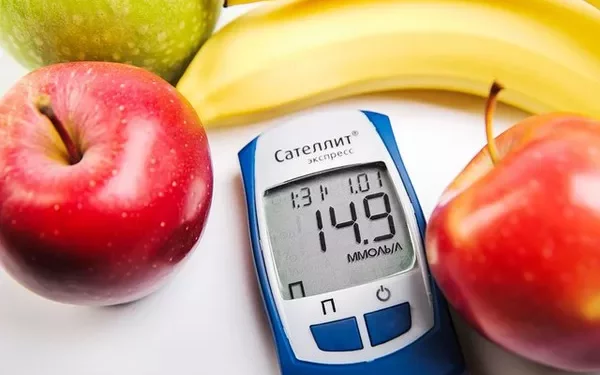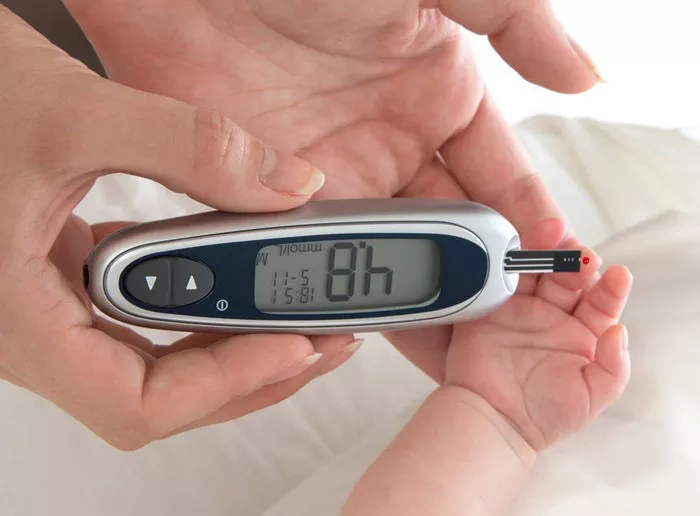Hyperglycemia, or elevated blood sugar levels, is commonly associated with diabetes, but it can also occur in individuals without a diabetes diagnosis. Addressing hyperglycemia in non-diabetic individuals is crucial to prevent potential progression to diabetes and manage overall health. This comprehensive article explores strategies and treatments for managing hyperglycemia in individuals without diabetes, focusing on lifestyle modifications, dietary changes, and other effective interventions.
Understanding Hyperglycemia
Hyperglycemia occurs when there is an excess of glucose in the bloodstream. It can result from various factors, including poor diet, sedentary lifestyle, stress, and certain medications. While hyperglycemia is a hallmark of diabetes, it can also affect individuals who are not formally diagnosed with the condition.
Causes of Hyperglycemia in Non-Diabetic Individuals
Several factors can contribute to hyperglycemia in individuals without diabetes:
Dietary Choices: High consumption of refined carbohydrates, sugary foods, and beverages can lead to elevated blood sugar levels.
Sedentary Lifestyle: Lack of physical activity can impair glucose metabolism and contribute to hyperglycemia.
Stress: Chronic stress can increase cortisol levels, which may raise blood glucose levels.
Medications: Certain medications, such as corticosteroids, can cause elevated blood sugar levels.
Hormonal Imbalances: Conditions such as polycystic ovary syndrome (PCOS) or thyroid disorders can affect glucose regulation.
Diagnosing Hyperglycemia
Before addressing hyperglycemia, it is essential to confirm its presence and determine the underlying causes. Diagnosis typically involves:
Blood Glucose Testing: Measuring fasting blood glucose levels, random blood glucose levels, or performing an oral glucose tolerance test (OGTT) to assess blood sugar control.
Hemoglobin A1c Test: Evaluating average blood glucose levels over the past two to three months. Elevated levels may indicate chronic hyperglycemia.
Treatment Strategies for Hyperglycemia Without Diabetes
Managing hyperglycemia in non-diabetic individuals primarily involves lifestyle modifications and dietary changes. The following strategies are effective in controlling blood sugar levels and promoting overall health:
1. Adopt a Balanced Diet
Diet plays a crucial role in managing blood sugar levels. Focus on the following dietary strategies:
Choose Low Glycemic Index Foods: Foods with a low glycemic index (GI) have a slower impact on blood sugar levels. Include whole grains, legumes, vegetables, and fruits with low GI values.
Reduce Refined Carbohydrates and Sugars: Limit intake of foods high in refined sugars and carbohydrates, such as sugary snacks, pastries, and white bread. Opt for complex carbohydrates like whole grains and legumes.
Increase Fiber Intake: High-fiber foods, such as vegetables, fruits, and whole grains, can help regulate blood sugar levels by slowing glucose absorption.
Incorporate Healthy Fats: Include sources of unsaturated fats, such as avocados, nuts, and olive oil. Healthy fats can improve insulin sensitivity and overall metabolic health.
Choose Lean Proteins: Opt for lean sources of protein, such as poultry, fish, tofu, and legumes. Protein helps with satiety and muscle maintenance.
2. Engage in Regular Physical Activity
Exercise is a powerful tool for managing blood sugar levels and improving overall health:
Aerobic Exercise: Engage in activities like walking, jogging, cycling, or swimming. Aim for at least 150 minutes of moderate-intensity aerobic exercise per week.
Resistance Training: Incorporate strength training exercises, such as weight lifting or bodyweight exercises, at least two to three times a week. Building muscle can improve glucose metabolism.
High-Intensity Interval Training (HIIT): HIIT involves alternating between high-intensity and low-intensity exercise. It has been shown to improve insulin sensitivity and reduce blood sugar levels.
3. Manage Stress Effectively
Chronic stress can negatively impact blood sugar levels. Implement stress management techniques to improve overall well-being:
Mindfulness and Meditation: Practice mindfulness and meditation to reduce stress and promote relaxation. Set aside time each day for these activities.
Deep Breathing Exercises: Incorporate deep breathing exercises to manage acute stress and support emotional health.
Adequate Sleep: Aim for 7-9 hours of quality sleep each night. Poor sleep can affect blood glucose regulation and increase stress levels.
4. Monitor and Regulate Blood Sugar Levels
Regular monitoring can help track progress and identify patterns related to blood sugar levels:
Frequent Glucose Testing: Use a glucose meter to check blood sugar levels periodically. This can help understand how different foods and activities affect blood glucose.
Maintain a Food and Activity Diary: Keep a diary of your meals, snacks, physical activity, and blood sugar readings. This can help identify trends and make necessary adjustments.
5. Stay Hydrated
Proper hydration is essential for maintaining overall health and managing blood sugar levels:
Drink Plenty of Water: Aim for at least 8 cups of water per day. Staying hydrated supports metabolic processes and can help manage appetite.
Limit Sugary Beverages: Avoid sugary drinks, such as sodas and fruit juices, which can contribute to elevated blood glucose levels.
6. Avoid Excessive Alcohol Consumption
Alcohol can impact blood sugar levels and contribute to hyperglycemia:
Moderate Alcohol Intake: If you choose to consume alcohol, do so in moderation. Limit intake to one drink per day for women and two drinks per day for men.
Choose Low-Sugar Options: Opt for low-sugar or sugar-free alcoholic beverages to reduce the impact on blood glucose levels.
Behavioral and Lifestyle Modifications
Making sustainable behavioral and lifestyle changes is key to managing hyperglycemia effectively:
Set Realistic Goals: Establish achievable goals for diet, exercise, and lifestyle changes. Set both short-term and long-term objectives to stay motivated.
Track Progress: Regularly monitor your progress through measurements, blood glucose readings, and overall health improvements. Adjust your strategies based on your results.
Seek Support: Engage with healthcare professionals, such as a dietitian or personal trainer, to create a personalized plan and receive guidance and support.
The Role of Medications and Supplements
In some cases, medications and supplements may be considered to support blood sugar management:
Medications: While medications are not typically required for non-diabetic hyperglycemia, certain medications may be prescribed to address underlying conditions contributing to elevated blood glucose.
Supplements: Some supplements, such as chromium, magnesium, and alpha-lipoic acid, may support glucose metabolism. Consult with a healthcare provider before starting any new supplements.
Monitoring and Managing Other Health Conditions
Hyperglycemia in non-diabetic individuals may be associated with other health conditions that require attention:
Monitor Blood Pressure: Regularly check your blood pressure and take steps to manage it if it is elevated.
Manage Cholesterol Levels: Monitor cholesterol levels and make dietary and lifestyle changes to maintain healthy cholesterol levels.
Address Hormonal Imbalances: If applicable, work with a healthcare provider to manage conditions such as PCOS or thyroid disorders that may impact blood sugar regulation.
Preventing Progression to Diabetes
Addressing hyperglycemia early is essential to prevent the progression to diabetes. The following steps can help reduce the risk of developing diabetes:
Maintain a Healthy Weight: Achieving and maintaining a healthy weight through diet and exercise can improve insulin sensitivity and reduce the risk of diabetes.
Regular Health Check-Ups: Schedule regular check-ups with healthcare providers to monitor blood glucose levels and assess overall health.
Educate Yourself: Stay informed about diabetes prevention strategies and healthy lifestyle practices.
See also: How Do You Calm Down Hyperglycemia?
Conclusion
Managing hyperglycemia without diabetes involves a multifaceted approach that includes dietary changes, regular physical activity, stress management, and ongoing monitoring of blood glucose levels. By implementing these strategies and making sustainable lifestyle modifications, individuals can effectively manage elevated blood sugar levels and reduce the risk of progression to diabetes.
Addressing hyperglycemia requires commitment and persistence, but with the right tools and support, it is possible to achieve significant improvements in health and well-being. If you have specific concerns or need personalized guidance, consult with healthcare professionals to develop a tailored plan that meets your needs.
Preventing and managing hyperglycemia is not just about avoiding diabetes; it is about enhancing overall health, preventing chronic diseases, and improving quality of life. By focusing on holistic health practices and making informed choices, you can successfully manage hyperglycemia and achieve your health goals.
Related topics:
How to Control Hyperglycemia at Home



























